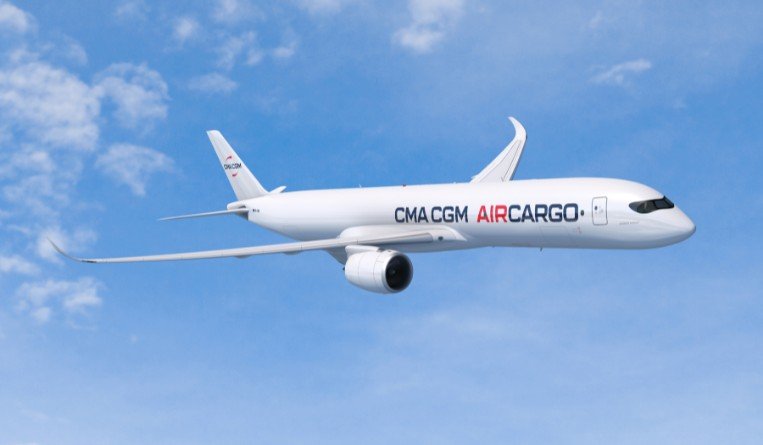The large container lines are boosting their logistics services capabilities with a fresh spate of acquisitions, positioning themselves as integrated service providers with end-to-end offerings for shippers.
In early December, CMA CGM added the latest company to its lengthening list of acquisitions when it announced an agreement to buy most of the commerce and lifecycle services (CLS) activities of Ingram Micro, a U.S.-based specialist in contract logistics and e-commerce, for US$3 billion.
According to CMA CGM, the acquired business has a strong base in contract logistics with e-commerce capabilities, from same-day parcel delivery to reverse logistics management, with operations in the Americas, Europe and the Asia-Pacific region. In addition, it gives CMA the Shipwire order fulfillment platform that caters largely to small and mid-sized companies.
Taking over Ingram Micro’s CLS business strengthens CMA’s CEVA Logistics and elevates it into the top four global contract logistics providers. CEVA and the new CLS operation combined employ about 90,000 people across more than 1,000 locations in 160 countries.
The acquisition, which is expected to close in the second half of 2022, is the shipping giant’s second multi-billion-dollar takeover in little over a month. In November it signed an agreement to buy the Fenix Marine Services container terminal at the Port of Los Angeles for US$2.3 billion.
In October, CMA CGM strengthened its e-commerce capabilities through a strategic partnership with open SaaS e-commerce platform BigCommerce, a move designed to develop e-commerce and digital marketing solutions for clients and manage the entire logistics chain. It offers merchants ERP and product information management software, CRM and marketing tools as well as website design and digital marketing capabilities.
Maersk, which has spearheaded the transformation of container lines into broad logistics providers, continued its expansion drive in November with the acquisition of forwarder Senator International for US$644 million. Senator employs 1,700 staff in 64 offices worldwide, offering multimodal logistics and packaging services. The company has a strong presence in air cargo, operating a network of 19 dedicated freighter flights a week.
Like CMA CGM, Maersk has bought a gaggle of firms in recent months. In August it spent a combined US$924 million on the acquisitions of Visible Supply Chain Management, which operates nine fulfillment centers across the U.S., and Netherlands-based B2C Europe. In September followed the agreement to take over Huub, a cloud-based omnichannel start-up in Portugal.
The shipping giants are flush with cash from their core business. Maersk, CMA CGM and Hapag-Lloyd reported over US$3 billion in profits in the first half of 2021. CMA CGM has earned US$11.17 billion in the January-September period, with US$5.6 billion earnings in the third quarter.
Armed with amply filled war chests, both Maersk and CMA CGM are extending their reach to owning freighter aircraft. Through its Star Air subsidiary Maersk will be leasing three Boeing 767 freighters in the coming year, and it recently signed a purchase order for two 777 freighters. CMA now has four Airbus A330 freighters in operation and has orders for two 777 and four A350 all-cargo planes.
Even at a time when a significant number of forwarders have signed up dedicated lift in order to ensure sufficient capacity to serve their core customers, outright purchases of freighters mark a highly unusual strategy for non-airline logistics firms to pursue. Maersk has indicated that it wants to move about one third of its air cargo tonnage in its own controlled network through a mix of owned and leased planes.
Will other container lines follow the pair into broader logistics services? In October Zim Integrated Shipping Services unveiled ‘Ship4wd’, and end-to-end digital shipping platform. This targets primarily small and mid-sized businesses in the U.S. and Canada that trade with China and Vietnam.
Some large Asian container lines already have latent but untapped airfreight capabilities. NYK and Evergreen own Nippon Cargo Airlines and Eva Air respectively but have largely stayed out of their business. Neither has given any indication of ambitions to align themselves more closely with the air cargo providers, but they may find the idea of end-to-end logistics services tempting. The extraordinary margins that the shipping lines are enjoying at the moment will not last forever, and the current influx of cash allows them to diversify and broaden their service portfolios.
Eytan Buchman, chief marketing officer of Freightos, noted that Maersk and CMA CGM are looking to beef up customer retention as well as margins. For shippers, this development heralds broader choice where to purchase airfreight capacity – they can go through forwarders, digital platforms, book directly with some airlines, and now ocean carriers and e-commerce firms like Amazon are coming into the picture. Most observers agree that the latter are buying freighters for their own needs, but inevitably they will begin to offer spare capacity to third parties sooner or later.
Forwarders have cause to feel uneasy about the advance of the shipping lines. Maersk executives assured the market in November that forwarders “have been, are and continue to be one of the biggest customer groups,” but observers noted that the line rejected some forwarder business citing capacity constraints, which fuelled speculation that it might be holding back capacity for direct sales.
Ian Putzger



